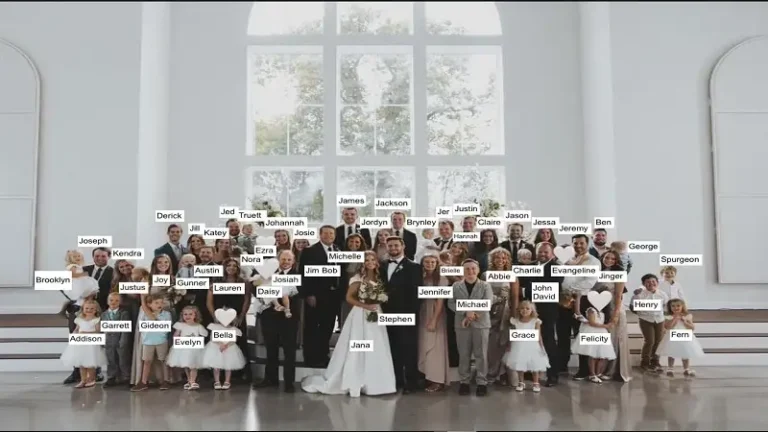Kankakee Mugshots Zone: A Closer Look at the Impact of Online Mugshot Databases
In recent years, online mugshot databases have gained prominence as one-stop platforms for people seeking public information about arrests. These websites, often referred to as “mugshot zones,” have made it incredibly easy for anyone with internet access to find mugshots and details of recent arrests. One such zone is the “Kankakee Mugshots Zone,” which focuses on providing mugshots and arrest records from the Kankakee County area in Illinois. While these platforms offer transparency and satisfy public curiosity, they also spark controversy, as they raise questions about privacy, fairness, and the long-term impact on the individuals featured.
In this article, we will explore what the Kankakee Mugshots Zone is, how it works, and delve into the broader social implications of mugshot databases. We’ll also look at the arguments both for and against such platforms, as well as the ways communities are responding to the complex issues they create.
What Is Kankakee Mugshots Zone?
Kankakee Mugshots Zone is part of a growing number of online platforms that aggregate and publish arrest records and mugshots of individuals in Kankakee County, Illinois. These websites typically pull data from local law enforcement agencies, such as the Kankakee County Sheriff’s Office or city police departments, and post it publicly. Visitors to these sites can search for mugshots, view recent arrests, and find out basic information about the charges filed.
In many cases, mugshot databases are driven by a desire to make arrest information more accessible to the public. After all, in the United States, arrest records are part of the public domain and fall under the Freedom of Information Act (FOIA). But these databases go beyond just a record of arrests — they often showcase mugshots, details about the alleged crimes, and sometimes even biographical information, such as age, height, weight, and home address.
While Kankakee Mugshots Zone is useful for those looking to track local crime trends or check on arrests in their community, it’s part of a larger network of mugshot sites that exist across the U.S. This accessibility has turned the issue of mugshot posting into a heated debate.
The Rise of Online Mugshot Databases
Online mugshot databases have become widespread over the last decade. Historically, arrest records were available only through official channels — individuals had to visit police departments or use formal request procedures to get this information. However, with the rise of the internet, this process has changed drastically.
Mugshot websites collect arrest records and publicly post them online. For many of these sites, the primary goal is traffic, and the business model often revolves around advertisements or offering a service where individuals can pay to have their mugshots removed from the platform. The ease of access, combined with the potential to make money from individuals who want to erase their public mugshots, has made these platforms highly controversial.
For websites like Kankakee Mugshots Zone, the appeal is twofold. On one hand, they provide transparency, giving residents of Kankakee County insight into local crime and safety concerns. On the other hand, they can be a source of personal humiliation and long-term reputation damage for those who appear on the site.
Arguments in Favor of Mugshot Zones
Proponents of mugshot zones argue that these websites serve an important public interest. Below are a few reasons why some individuals support the existence of platforms like Kankakee Mugshots Zone:
1. Public Right to Know
Mugshot databases make it easy for the public to stay informed about who is being arrested in their community. These sites provide transparency in a digital age, making it easier to keep tabs on crime trends and safety issues in specific areas. For journalists, community leaders, and concerned citizens, immediate access to arrest records can be a valuable tool.
2. Accountability
By publishing arrest information and mugshots, these platforms promote accountability. Law enforcement agencies, as well as those accused of crimes, are subject to public scrutiny, which can discourage misconduct on both sides. If a particular individual has been repeatedly arrested, for instance, the community can become more aware of repeat offenders and take necessary steps to ensure safety.
3. Deterrent for Criminal Activity
Supporters argue that mugshot zones can serve as a deterrent to criminal activity. The knowledge that an arrest can result in a publicly available mugshot might discourage some individuals from engaging in illegal behavior. The potential embarrassment of having their image plastered online could be a factor in crime prevention.
The Case Against Mugshot Zones
Despite the arguments in favor of transparency, the rise of mugshot databases has raised serious concerns about privacy, ethics, and fairness. Critics of these platforms point out the numerous harms they cause to individuals who find themselves featured on these websites, often unfairly.
1. Reputation Damage
One of the biggest issues with mugshot zones is the long-term damage they can inflict on a person’s reputation. In many cases, those who are arrested have not yet been convicted of any crime. They may even be innocent. However, their mugshot and arrest record can live online for years, tarnishing their image long after the case has been resolved or dismissed.
Imagine a scenario where someone was wrongfully arrested or where charges were dropped. Even if they were cleared of wrongdoing, their mugshot could still be searchable online, affecting their chances of finding employment, housing, or maintaining personal relationships. For individuals in Kankakee County, appearing on the Kankakee Mugshots Zone can become a source of ongoing shame and humiliation, regardless of the outcome of their case.
2. Exploitation and Profit
A major criticism of these platforms is that they profit off of individuals’ misfortune. Some websites charge individuals hundreds of dollars to have their mugshots removed. This “pay-to-remove” model can be exploitative, as it preys on people who are desperate to clear their name. Critics argue that this creates a business model based on extortion, which disproportionately impacts low-income individuals who may not be able to afford to pay for removal.
3. Disproportionate Impact on Minorities and Low-Income Communities
Mugshot zones can exacerbate existing inequalities. Studies have shown that low-income individuals and minorities are disproportionately represented in arrest records, due to systemic issues within the justice system. As a result, these communities are more likely to be negatively affected by the public shaming that comes with mugshot postings. Critics argue that these platforms further stigmatize already marginalized groups, deepening social divides.
4. Inaccuracies and Lack of Updates
Many mugshot sites, including some like Kankakee Mugshots Zone, may not regularly update their records to reflect new information. For instance, if charges are dropped or an individual is found not guilty, the site may not be updated to show this. This means that outdated or incorrect information can continue to harm individuals long after their legal issues have been resolved.
Legal Challenges and Reforms
As awareness of the issues surrounding mugshot databases has grown, there have been efforts to curb their harmful effects. Several states have enacted laws to restrict the use of mugshots online. For instance, some states now require that mugshot websites remove images upon request for free if the individual can show that they were not convicted of the crime.
In Illinois, there has been growing discussion about the ethical implications of these websites, and there may be future legislation to address some of these concerns. As of now, the legal landscape remains a patchwork of regulations, and the issue continues to evolve.
Community Response
In response to the challenges posed by online mugshot databases, some communities are pushing for change. Grassroots efforts aimed at educating the public about their rights, promoting privacy protections, and pushing for legal reform have gained momentum. In Kankakee County, as elsewhere, there is a growing recognition of the need to balance transparency with fairness and compassion.
Local organizations and activists are also exploring alternatives to public shaming, focusing on criminal justice reform and rehabilitation rather than punishment through exposure. Some argue that communities should work together to support individuals through their legal challenges rather than subject them to long-term harm.
Conclusion
The rise of websites like Kankakee Mugshots Zone represents a new era of digital transparency — one that comes with significant benefits but also raises complex ethical questions. While these platforms allow the public to stay informed about local crime and safety issues, they also have the potential to harm individuals, especially when it comes to privacy, reputation, and fairness.
As the debate continues, communities like Kankakee must weigh the value of transparency against the need to protect the rights and dignity of their residents. Whether through legal reform or grassroots action, the future of mugshot zones will likely involve a more nuanced approach, one that balances the public’s right to know with the importance of rehabilitation and second chances.






